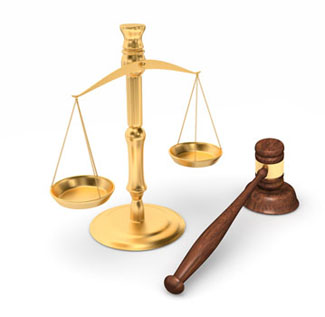
Expert Scientific Testimony Helps Establish Causation Required For Camp Lejeune Claims To Succeed
Toxicologists, Epidemiologists, and other medical experts may be called to provide scientific testimony
Thursday, March 21, 2024 - One of the great advantages of hiring a Camp Lejeune water attorney is the help they can provide in producing the scientific evidence that links one's disease with consuming contaminated water on the base. Attorneys can of course also procure the medical and military records that are required to be submitted but moreover, the science is by far the most important part of one's case. The scientific testimony in the Camp Lejeune water contamination cases plays a crucial role in understanding the health impacts of long-term exposure to the contaminated water. As the lawsuits progress, and particularly for those who have elected the Elective Option, understanding the scientific basis of their claims is critical. This is a speculative analysis since specific details about the experts who testified or the content of their testimonies for those who elected the Elective Option are not provided in the available sources. In environmental litigation such as the Camp Lejeune water contamination cases, scientific experts are often brought in to provide evidence on the link between exposure to certain chemicals and the development of diseases. These experts typically come from fields such as toxicology, epidemiology, oncology, and environmental science. Their testimony helps establish causation--a key element required for plaintiffs to succeed in their claims.
Clearly explaining the nature of substances like vinyl chloride, benzene, trichloroethylene (TCE), and tetrachloroethylene (PCE) discovered in the Camp Lejeune water supply would be a crucial task for toxicologists serving as expert plaintiff witnesses. They need to describe how these compounds interact with the human body and can cause diseases including multiple myeloma, leukemia, Parkinson's disease, and different types of cancer. Researchers studying populations exposed to similar toxins may be asked to discuss their findings with epidemiologists. They can provide information on the dangers associated with tainted water at Camp Lejeune by comparing the incidence rates of diseases in these populations to those in unexposed groups. Their knowledge is especially helpful in proving the statistical significance of recorded health consequences, which helps the plaintiffs' cases.
Medical professionals who specialize in kidney disease, non-Hodgkin lymphoma, and cancer, among other illnesses, could testify on the diagnosis, course of treatment, and prognosis of the disorders that the plaintiffs have claimed. They would provide information on how the victims' health problems and the exposure at Camp Lejeune are related. Understanding the contamination process, particularly how the dangerous compounds entered the water system and the level of exposure among Camp Lejeune inhabitants, would require the expertise of environmental science experts. Historical information on water quality, usage trends, and the possibility of exposure for various base populations would all be included in their research.
The difficulty of proving a direct cause-and-effect relationship between exposure and illness is one of the difficulties in providing scientific evidence. There may be long intervals between exposure and diagnosis because of the latency period of many infections. Furthermore, a person's susceptibility to toxins can vary depending on their genetics, way of life, and other environmental exposures. To make a strong case that the tainted water at Camp Lejeune considerably raised the likelihood of getting particular illnesses, experts must negotiate these complications. This frequently entails a thorough examination of each patient's medical history as well as a more general investigation of epidemiological data.

 OnderLaw, LLC and The Overholt Law Firm, PC -
OnderLaw, LLC and The Overholt Law Firm, PC -